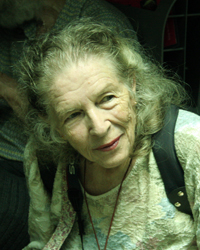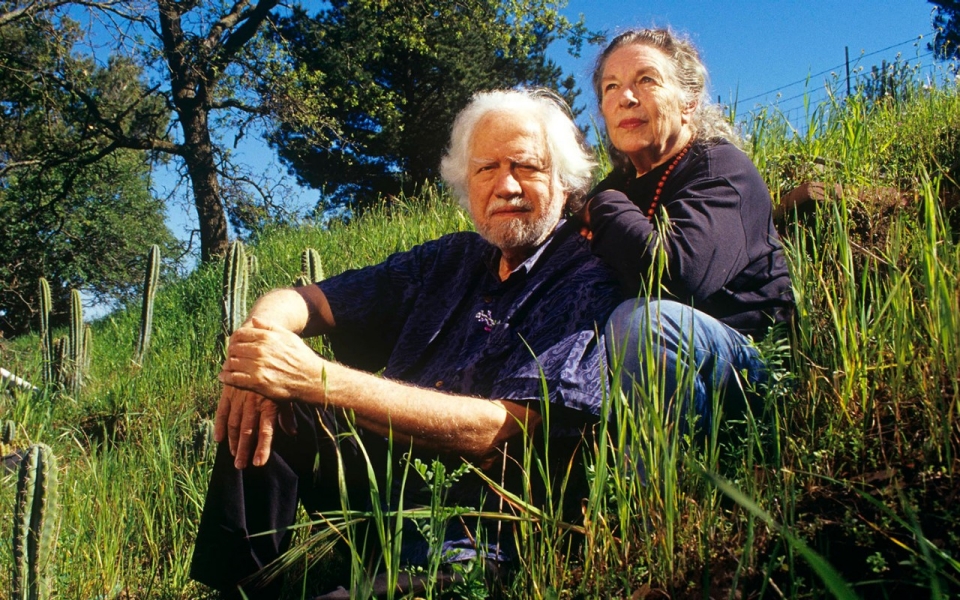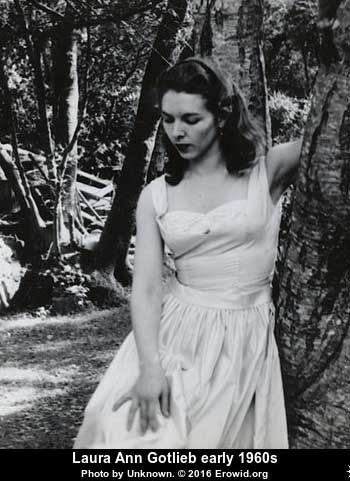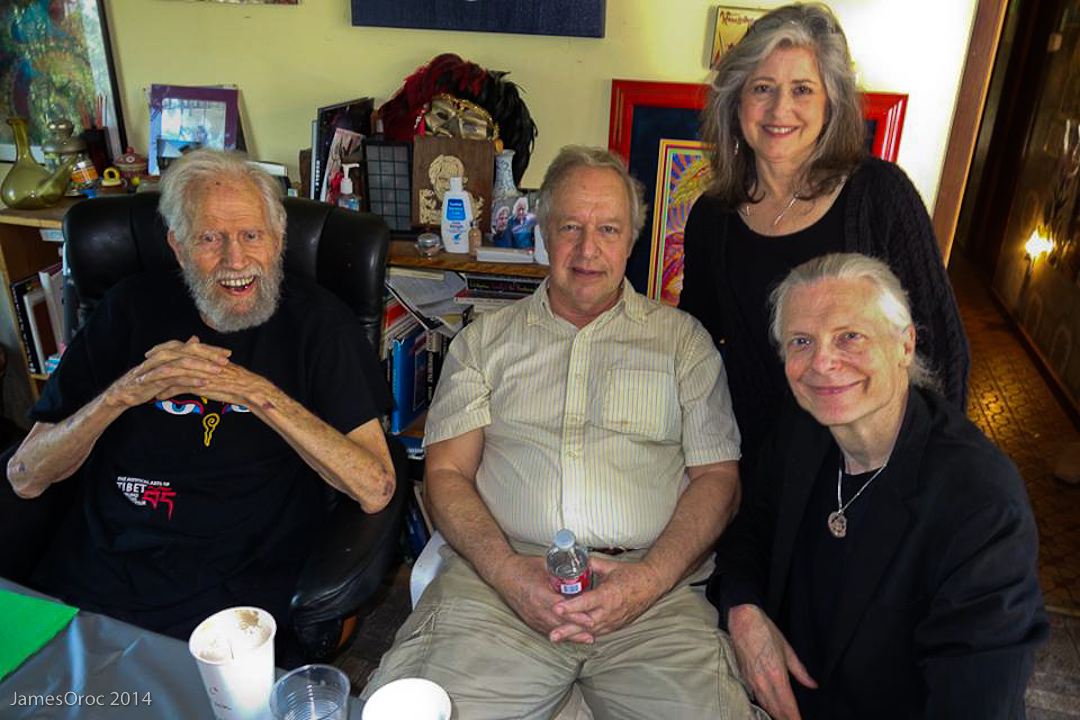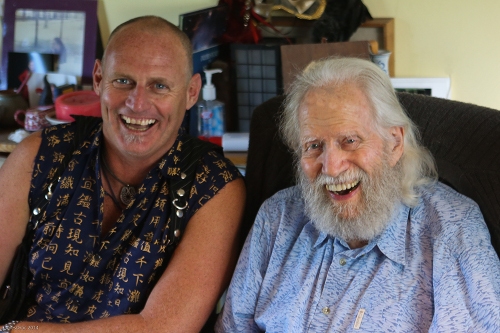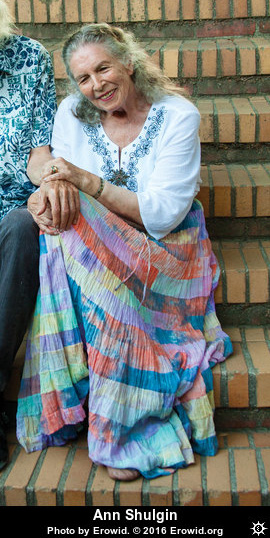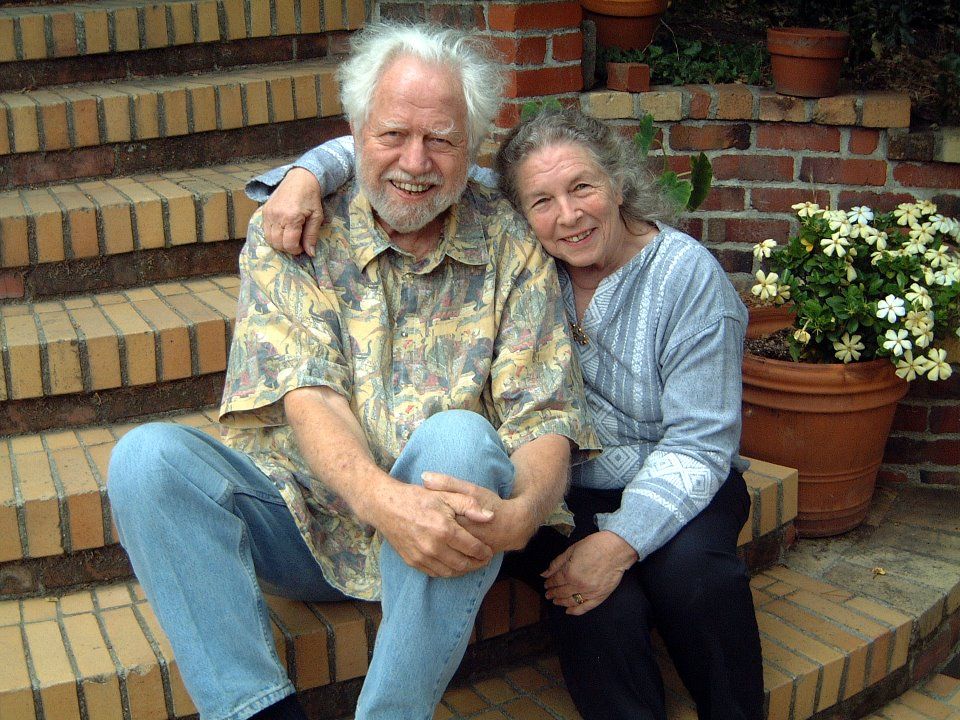mr peabody
Bluelight Crew
- Joined
- Aug 31, 2016
- Messages
- 5,714

An Interview with Ann Shulgin on Psychedelics and Self-Discovery
MAPS: Can you discuss the influence of psychedelics on your own personal growth? Are there specific psychedelics that you consider particularly helpful tools for self-discovery?
Ann Shulgin: Every single human body has a different chemistry. So, just because a particular drug or visionary plant is my favorite, or has taught me a great deal, doesn't mean it's going to be so for anyone else. In one recent case, I said often, too often, that something called 2CB Fly was absolutely great for me. To me, it's the loveliest thing, especially for eroticism. But I found out that it's not interesting to anybody else. I realized that having said that, I was putting things in motion. The Internet was full of 2CB Fly, and people were asking about it and I thought “uh-oh.” It turned out that it's a disappointment to most other people. So if I say what my favorite psychedelics are, it's almost meaningless for other people, because they have to find their allies very carefully.
For example, 2CB, I think, is one of Sasha's really great inventions, and I think that 2CB is a pretty good friend to most people. But you come to something like ayahuasca--a close relative of mine feels that it's the greatest teacher that she's ever come across in the psychedelic world and I can't take it. Sasha and I had two interesting experiences with ayahuasca. We went to a special place where the ceremony was conducted by very dear friends of ours, and it was a lovely experience. Sasha has totally different kinds of experiences than I do, but both of us felt that it was not going to be a dominant thing in our lives, although it was pleasant and we had enjoyed it. So we were quite ready to try it again six months later. We went to the same place with the same people, and we took a very small amount. We were being very cautious, because we usually are. I spent the entire time holding onto my seat, hoping that I was going to survive, because I was being run over by a train. There was no way to learn anything, except how to stay alive. Sasha had a totally different experience, which was just as negative in its own way. He did a lot of vomiting, while I did none at all. Toward the end of my train ride, a voice in my head said, “Don't come here again.” I thought, “Uh-oh, well I'm not liable to, actually.” The next day, when everyone was having the second session, we decided we would participate. But, we decided to take a minuscule amount, just a half or third of what we took the day before, which was a pretty minor amount in the first place. The train started coming at me again, and the whole thing repeated for both of us, except it didn't last quite as long. And the voice came back, and it said, “Didn't you hear me the first time?”At which point I said, “Okay, alright!” I've never taken it again, and don't intend to do so. Ayahuasca is one of the best allies of a lot of people I know, but it's not ours.
Marijuana is the same thing. It would be great to be able to enjoy marijuana, because you could take it everyday, and we know a lot of people who do. Also, I don't like alcohol at all, so there's nothing I can take every evening if I feel like it. But marijuana is also something that neither of us can enjoy. Sasha feels that it's a waste of time because he doesn't learn anything. I finally found out from my daughter, what I had not understood, which was that not everybody has my marijuana experience. What happens to me is that I have a full blown psychedelic experience, only with paranoia. And that's not much fun. So all I'm learning is, number one, how to get out as soon as possible, and number two, not to take it again. Yet, marijuana is the favorite plant or drug of a tremendous number of people.
So, it comes down to experimenting, carefully, on yourself. Please always have a babysitter, no matter how experienced you are-always. I won't go into the things that can happen to hard-headed people with great experience who think that they can do it all by themselves and run into trouble. Always have a babysitter who is familiar with the territory, and who can come in and hold your hand, or say the right thing. I think that psychedelics are great spiritual tools, but like a lot of spiritual experiences, they can take you to very, very dark places, and you can spend quite a lot of time wondering if you're going to get through some of these experiences. So, be careful and be very respectful of your mental, emotional, and physical health. Take care of your body, and don't take a powerful drug or plant if you're not well. As for the effect of psychedelics on my life, I couldn't begin to tell you, because I have no idea what my life would be like without them. Since I had major spiritual experiences starting when I was an infant, I assume I would have found my way to some sort of spiritual searching or exploration without their assistance.
Psychedelics teach you about time. They teach you about the different levels of reality that aren't available to your conscious mind most of the time. They teach you that you're much saner than you thought, and that you probably are much stronger, mentally, than you suspected, and that you are capable of quite extraordinary things. I think that psychedelics are wonderful. But they are also not for everyone. Not everyone finds them an ally, and keeping that in mind those people should study hypnotism and learn the trance state, which opens the same doors. No human being is limited to one means of self-discovery. Use psychedelics only if you are quite sure that they are your path.
Last edited:

